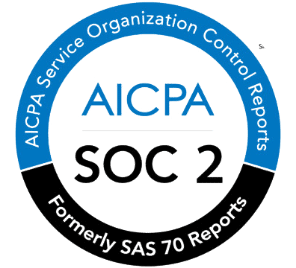Sometimes, the simple path is the best path.
Other times, “simple” just doesn’t suffice.
As a financial planner, you are constantly looking for ways to help your clients manage their assets that are cost-effective, relatively straightforward, and easy to maintain.
You try to find tools that make it easy for them to lay out a strong financial plan while also having the features needed for them to maintain it.
This is where the question of online estate planning software comes in.
Is online software sufficient for a strong estate plan?
- Financial planners are responsible for helping clients to create comprehensive financial plans that take into account everything from current financial and investment needs to long-term estate planning.
- Estate planning is often more complex than many clients think and should involve a number of factors, even for those clients who don’t think they are at the age or have the assets to need it.
- When choosing estate planning software for your clients, make sure you weigh the pros and cons of various types and assess how the software aligns with their estate planning needs.
Estate planning is a bit like coming up with an exercise plan. Most of us know we need to do it and we set out with lofty goals, optimistic that we can achieve them.
But without the right resources, research, and realistic expectation, many times even our best-laid plans fall short, and we are left disappointed, disheartened, and frustrated that we still haven’t achieved our goal.
For some, online estate planning software will be sufficient in helping them meet their desired financial goals. For others, online estate planning software is not robust enough to give them what they need to fully flesh out a comprehensive and personalized estate plan.
If you are a financial planner who is trying to determine whether online estate planning is a good choice for your clients, read on. Here is a deeper dive into estate planning software and what type is best to keep your clients on track for the financial future they desire.
What is Estate Planning Software?
Estate planning is the process of organizing and managing an individual’s assets and affairs to ensure that their wishes are carried out after their death or incapacitation. It involves creating legal documents and strategies to distribute assets, minimize taxes, and provide for loved ones.
Estate planning encompasses a variety of tasks, including drafting wills, setting up trusts, keeping documents organized and up-to-date, designating beneficiaries, and preparing healthcare directives.
The over-arching goal of a good estate plan is to protect assets, reduce legal complications, and ensure that one’s wishes are honored.

Here are some of the key components of estate planning:

Will Drafting:
A will is a legal document that specifies how an individual’s assets should be distributed upon their death. It outlines beneficiaries, guardians for minor children, and an executor to oversee the estate’s administration.

Trust Creation:
Trusts are legal entities that hold and manage assets on behalf of beneficiaries. There are various types of trusts, such as revocable and irrevocable trusts, each serving different purposes, such as avoiding probate or protecting assets.

Beneficiary Designations:
It’s important to have a clear understanding of who will receive assets from accounts like retirement funds and life insurance policies after a person’s death. Keeping beneficiary designations up-to-date is crucial to ensure they align with the overall estate plan.

Healthcare Directives:
Documents like living wills and medical powers of attorney outline an individual’s preferences for medical treatment and designate someone to make healthcare decisions if they become incapacitated.

Estate Tax Planning:
Coming up with strategies to minimize estate taxes and ensure that more assets are passed on to beneficiaries is a key part of good estate planning. This may involve gifting assets during one’s lifetime or setting up certain types of trusts.
Many of your clients may wonder if they really need estate planning done.
They may think that they aren’t old enough to worry about beneficiary designations or creating wills or medical directives. They may also assume that their assets aren’t significant enough to warrant detailed planning.
However, estate planning is important for everyone, regardless of age or wealth.
Here’s why:
Unexpected Life Events:
Life is unpredictable, and unexpected events can happen at any age. Having an estate plan in place ensures that your clients’ wishes are honored in the event of illness, incapacity, or sudden passing. It provides peace of mind knowing that their affairs are in order.
Protection of Loved Ones:
Estate planning is not just about managing assets; it’s about protecting loved ones. By designating guardians for minor children, setting up trusts, and providing clear instructions for asset distribution, clients can ensure that their family members are taken care of according to their wishes.
Avoiding Probate:
Proper estate planning can help avoid the lengthy and costly probate process. By setting up trusts and other legal mechanisms, clients can ensure that their assets are transferred smoothly and efficiently to their beneficiaries without the need for court intervention.
Healthcare Directives:
Healthcare directives, such as living wills and medical powers of attorney, are crucial components of an estate plan. They specify clients’ preferences for medical treatment and designate someone to make healthcare decisions on their behalf if they are unable to do so. This reduces the burden on family members during difficult times.
Minimizing Taxes and Expenses:
A well-crafted estate plan can help minimize estate taxes and other expenses, preserving more of the clients’ assets for their beneficiaries. Tax-efficient strategies and proper asset management can reduce financial burdens on the estate.
Ensuring Beneficiary Designations are Up-to-Date:
Estate planning ensures that beneficiary designations for accounts like retirement funds and life insurance policies are current and aligned with the overall estate plan. This prevents unintended consequences and ensures that assets go to the right people.
Special Needs Planning:
For clients with family members who have special needs, estate planning is essential to provide for their long-term care and financial security. Special needs trusts can be established to ensure that they receive the necessary support without jeopardizing their eligibility for government benefits.
Whether a person is young or old, wealthy or of modest means, each of your clients can benefit from having a comprehensive estate plan.
And as a financial planner, you play a vital role in helping them create one that is best for their lifestyle and situation.
Efficiency Meets Value in Financial Planning
Holistiplan bridges the gap between speed and quality, helping advisors like you deliver greater value to every client
Online Estate Planning? The Pros and Cons for Every Type of Client
In recent years, online estate planning has become increasingly popular, offering a convenient and cost-effective way for individuals to create and manage their estate plans.
However, it’s important to understand the pros and cons of online estate planning to determine whether it is the right fit for your clients.
Here’s a closer look at the advantages and disadvantages of online estate planning for various client scenarios:

The Pros of Online Estate Planning
Online estate planning (sometimes referred to as online will makers) allows a client to create documents for their estate planning needs without the help of legal counsel.
It is an attractive option to many people for a variety of reasons:
- It’s Convenient: Online estate planning tools allow clients to create and update their estate plans from the comfort of their homes.
This accessibility is particularly beneficial for clients with busy schedules or those who prefer a DIY approach. The ability to access documents anytime and anywhere makes the process more flexible and user-friendly. - It’s Cost-Effective: Online estate planning platforms are generally more affordable than hiring an attorney. For clients with straightforward estate planning needs, these tools provide a cost-effective solution without compromising on essential features.
The lower cost makes estate planning accessible to a wider audience. - It’s Simple: Many online estate planning platforms are designed with user-friendliness in mind.
They offer step-by-step guidance, templates, and easy-to-follow instructions, making the process less daunting for clients. This simplicity can be especially helpful for individuals who are new to estate planning. - It’s Easy to Self-Manage: Clients can make immediate updates to their estate plans as their circumstances change.
This flexibility ensures that their estate plans remain current and accurately reflect their wishes. The ability to update documents in real-time without additional costs is a significant advantage.
The Cons of Online Estate Planning
While online estate planning may seem convenient and more affordable to many, there are some big downsides to the do-it-yourself approach to estate planning.
Here are some reasons why online estate planning may not be the best option:

It Isn’t Ideal for More Complex Estate Planning:
If you feel that your needs consist mainly of just a will-based estate plan, you may be able to use one of the many online estate planning services to help draft this document.
But estate planning clients with complex estate planning needs — such as blended families, significant assets, or special needs dependents — may find online tools insufficient. Specialized estate planning software or the expertise of an estate planning attorney is essential to address the intricacies of their situations effectively.
It Doesn’t Account for Tax Considerations:
Estate planning involves various legal and tax considerations that may not be fully addressed by online tools.
Clients with significant tax liabilities or unique legal concerns may benefit from professional advice and tailored strategies. Online tools may lack the depth and customization needed for comprehensive tax planning.
It Lacks Personalization:
While online tools provide general guidance, they lack the personalized advice that an attorney in an estate planning practice can offer.
Clients with more complex situations may require the unlimited attorney support and expert insights that hiring a law firm can offer. This type of attorney assistance and personal interaction can provide a level of reassurance and confidence that online tools simply can’t offer.
It Isn’t Part of a Comprehensive Financial Plan:
Online estate planning tools often operate in isolation, focusing solely on the creation of estate planning documents without integrating them into a client’s broader financial strategy.
A comprehensive financial plan encompasses various aspects of a client’s financial life, including investments, retirement planning, tax optimization, and risk management. Estate planning should be seamlessly integrated into this holistic approach to ensure that all financial decisions are aligned and working together towards the client’s overall goals.
In the end, it’s important that you help your client determine what type of estate prep is going to be best for them.
Just like with an exercise regimen, consistency is going to be a key factor in making sure their estate plan is in line with their long-term financial goals.
Holistiplan: The Best Estate Planning Software for Financial Planners and a Client’s Future Success
Helping your clients define their goals and find ways to execute them is a huge part of your purpose as their financial planner.
And like a physical trainer or personal coach, you need to have the right tools and resources to help them accomplish what they’ve set out to do.

This is why over 8,000 financial planners have chosen to use Holistiplan for all their estate planning needs.
Holistiplan is designed to help your clients stay their financial course, no matter where they are in the journey.
Whether they’ve created a simple will, have planned out their medical directive, or are already setting up a revocable living trust, Holistiplan can help keep everything in order, updated and shared with the necessary people.
Here are some of the biggest features that Holistiplan brings to your client’s estate plan and overall financial portfolio:
- Estate Report: With our easy-to-follow layout, your clients can quickly see their wills, living trusts, chosen beneficiaries, powers of attorney, advanced medical directives and other non-probate directives all in one place. It’s easy for them to share this with an estate lawyer or their heirs to keep everyone in the loop.
- Asset Diagram: Thanks to our carefully designed asset diagrams, a client can visualize their asset distribution. By adjusting the interactive flowchart, they can see the cascading effects of updated asset values on real estate, bank accounts, IRAs, and other investments.
- Beneficiary Review: Throughout a lifetime, a person’s beneficiaries may change. Holistiplan estate planning software helps to update these as necessary and provide clients with a real-time summary review for all transfer-on-death assets.
Setting goals can be a challenge for all of us.
Whether it’s losing weight, paying down debt, finishing a project or planning for our futures, we all need the right tools to help us accomplish what we’ve set out to do.
Give your clients the gift of a solid head start in their estate planning journey. Reach out today and see how Holistiplan can provide the guidance, resources, and confidence needed to make their estate planning goals come true.
Built by CFP® Professionals,
for CFP® Professionals
Holistiplan was designed by experienced advisors Roger and Kevin to streamline your financial planning process. Achieve more for your clients in less time
Start Your Free 7-Day Trial




